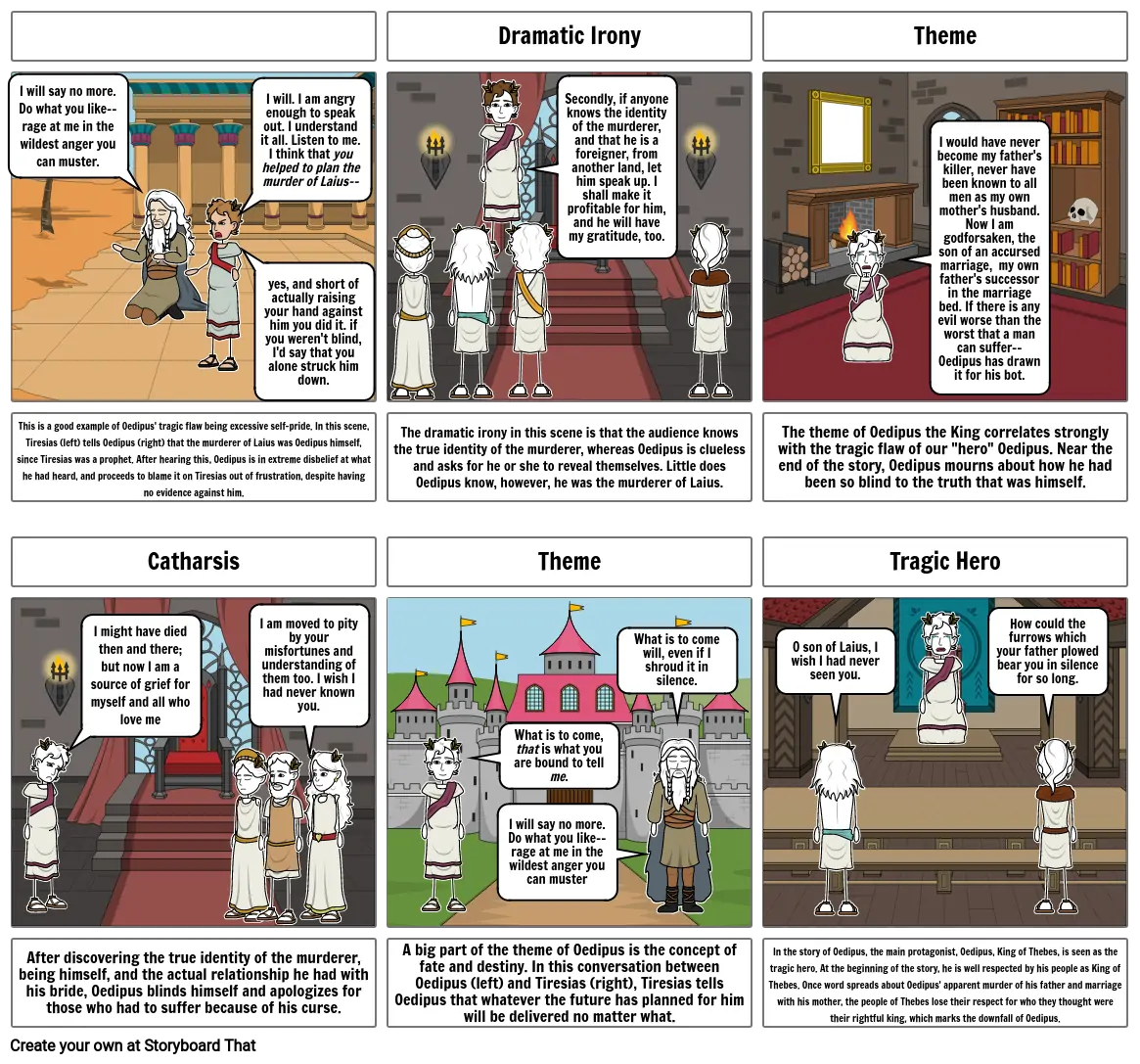Oedipus

Siužetinės Linijos Tekstas
- I will say no more. Do what you like--rage at me in the wildest anger you can muster.
- I will. I am angry enough to speak out. I understand it all. Listen to me. I think that you helped to plan the murder of Laius--
- yes, and short of actually raising your hand against him you did it. if you weren't blind, I'd say that you alone struck him down.
- Dramatic Irony
- Secondly, if anyone knows the identity of the murderer, and that he is a foreigner, from another land, let him speak up. I shall make it profitable for him, and he will have my gratitude, too.
- Theme
- I would have never become my father's killer, never have been known to all men as my own mother's husband. Now I am godforsaken, the son of an accursed marriage, my own father's successor in the marriage bed. If there is any evil worse than the worst that a man can suffer--Oedipus has drawn it for his bot.
- This is a good example of Oedipus' tragic flaw being excessive self-pride. In this scene, Tiresias (left) tells Oedipus (right) that the murderer of Laius was Oedipus himself, since Tiresias was a prophet. After hearing this, Oedipus is in extreme disbelief at what he had heard, and proceeds to blame it on Tiresias out of frustration, despite having no evidence against him.
- Catharsis
- I might have died then and there; but now I am a source of grief for myself and all who love me
- I am moved to pity by your misfortunes and understanding of them too. I wish I had never known you.
- The dramatic irony in this scene is that the audience knows the true identity of the murderer, whereas Oedipus is clueless and asks for he or she to reveal themselves. Little does Oedipus know, however, he was the murderer of Laius.
- Theme
- What is to come will, even if I shroud it in silence.
- The theme of Oedipus the King correlates strongly with the tragic flaw of our "hero" Oedipus. Near the end of the story, Oedipus mourns about how he had been so blind to the truth that was himself.
- Tragic Hero
- O son of Laius, I wish I had never seen you.
- How could the furrows which your father plowed bear you in silence for so long.
- After discovering the true identity of the murderer, being himself, and the actual relationship he had with his bride, Oedipus blinds himself and apologizes for those who had to suffer because of his curse.
- A big part of the theme of Oedipus is the concept of fate and destiny. In this conversation between Oedipus (left) and Tiresias (right), Tiresias tells Oedipus that whatever the future has planned for him will be delivered no matter what.
- What is to come, that is what you are bound to tell me.
- I will say no more. Do what you like--rage at me in the wildest anger you can muster
- In the story of Oedipus, the main protagonist, Oedipus, King of Thebes, is seen as the tragic hero. At the beginning of the story, he is well respected by his people as King of Thebes. Once word spreads about Oedipus' apparent murder of his father and marriage with his mother, the people of Thebes lose their respect for who they thought were their rightful king, which marks the downfall of Oedipus.
Sukurta daugiau nei 30 milijonų siužetinių lentelių

